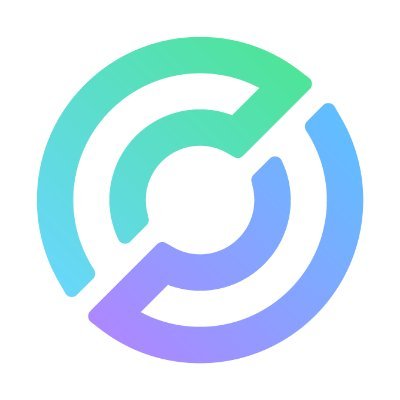Confronta Circle Wallet vs CoinSpot Wallet Wallet
In today's digital market, the trend of cryptocurrency has flooded the financial sector. With thousands of crypto coins available for trade, the necessity of a safe and secure digital wallet has gained paramount importance. The article will delve into a comparison between two major crypto-wallets - Circle Wallet and CoinSpot Wallet, to assist users in making an informed choice.
| Società | ||
|---|---|---|
| User rating | 5 recensioni degli utenti | 16 recensioni degli utenti |
| Cryptogeek rating | ||
| Punteggio di Fiducia Come funziona |
About
|
Circle è un portafoglio facile da usare che offre l'opportunità di acquistare, trasferire e risparmiare denaro digitale. Il nome completo dell'applicazione era Circle Invest wallet. La sua versione mobile può essere trovata su Google Play e Apple Store.
|
Coinspot wallet è un servizio speciale fornito da Coisnpot exchange. Fornisce un portafoglio caldo per ogni moneta che il suo scambio sta attualmente scambiando. Insieme a crypto, supporta anche il dollaro australiano. Attualmente, il portafoglio CoinSpot ha più di monete e gettoni 60. Lo scambio integrato è una funzionalità aggiuntiva del portafoglio e 2FA per la sicurezza aggiuntiva. L'unica lingua disponibile è l'inglese.
|
Data di lancio
| 2013 | 2013 |
Località:
| USA | Australia |
Lingue
| English | English |
Tipo di portafoglio
| Software wallet | Software wallet |
Tipo di storage
| Cold wallet | Hot wallet |
Chiavi private
| Non disponibile | Non disponibile |
Monete disponibili
| 6 - Bitcoin (BTC), USD Coin (USDC), Ethereum (ETH), Stellar (XLM), Algorand (ALGO), Solana (SOL) | 149 - Bitcoin (BTC), Basic Attention Token (BAT), IOTA (MIOTA), Tezos (XTZ), Ethereum Classic (ETC), NEO (NEO), VeChain (VET), OmiseGO (OMG), Qtum (QTUM), Verge (XVG), Lisk (LSK), ICON (ICX), Ontology (ONT), Bitcoin Gold (BTG), Zcash (ZEC), Nano (NANO), Populous (PPT), Bytecoin (BCN), Steem (STEEM), Wanchain (WAN), Siacoin (SC), Dogecoin (DOGE), Waves (WAVES), Zilliqa (ZIL), Decred (DCR), Aeternity (AE), Status (SNT), 0x (ZRX), Loopring (LRC), Komodo (KMD), Aion (AION), Golem (GNT), Ardor (ARDR), IOST (IOST), DigiByte (DGB), Ark (ARK), Waltonchain (WTC), aelf (ELF), PIVX (PIVX), Factom (FCT), Dragonchain (DRGN), Substratum (SUB), Mithril (MITH), Syscoin (SYS), Gas (GAS), Elastos (ELA), Voyager Token (VGX), FunFair (FUN), Nxt (NXT), Nebulas (NAS), Nucleus Vision (NCASH), OByte (GBYTE), ReddCoin (RDD), Revain (REV), WAX (WAX), SALT (SALT), Electroneum (ETN), MaidSafeCoin (MAID), Power Ledger (POWR), Zcoin (XZC), Enigma (ENG), Storj (STORJ), TenX (PAY), Neblio (NEBL), Cindicator (CND), Skycoin (SKY), Horizen (ZEN), Civic (CVC), SingularityNET (AGI), POA Network (POA), Nexus (NXS), GameCredits (GAME), Dent (DENT), Vertcoin (VTC), Quantstamp (QSP), iExec RLC (RLC), Decentraland (MANA), Polymath (POLY), Po.et (POE), Loom Network (LOOM), NULS (NULS), Enjin Coin (ENJ), Raiden Network Token (RDN), Metal (MTL), Arcblock (ABT), Pundi X (NPXS), SIRIN LABS Token (SRN), Bluzelle (BLZ), Genesis Vision (GVT), THETA (THETA), NavCoin (NAV), Gifto (GTO), Comet (CMT), AirSwap (AST), OST (OST), Scry.info (DDD), Ripio Credit Network (RCN), Streamr DATAcoin (DATA), Quantum Resistant Ledger (QRL), AdEx (ADX), UTRUST (UTK), Einsteinium (EMC2), Ambrosus (AMB), Groestlcoin (GRS), WePower (WPR), Peercoin (PPC), Crypterium (CRPT), USD Coin (USDC), Ripple (XRP), Binance Coin (BNB), Bitcoin Cash (BCH), Bitcoin SV (BSV), Cardano (ADA), Cosmos (ATOM), Dash (DASH), EOS (EOS), Ethereum (ETH), Litecoin (LTC), Monero (XMR), NEM (XEM), Stellar (XLM), Tether (USDT), Tron (TRX), Polkadot (DOT), BitTorrent (BTT), Terra (LUNA), pTokens BTC (PBTC), Crypto.com Coin (CRO), Filecoin (FIL), FTX Token (FTT), Kusama (KSM), Algorand (ALGO), NEAR Protocol (NEAR), Ocean Protocol (OCEAN), Celo (CELO), Energy Web Token (EWT), Quant (QNT), Hedera Hashgraph (HBAR), Solana (SOL), Helium (HNT), IoTeX (IOTX), TomoChain (TOMO), Chiliz (CHZ), Ankr (ANKR), IRISnet (IRIS), SUN (SUN), Hive (HIVE), Unibright (UBT), Fantom (FTM) |
Sicurezza
| Nessun dato | Nessun dato |
Anonimità
| Nessun dato | Nessun dato |
Facilità di uso
| Nessun dato | Nessun dato |
Puoi connettere la carta
| Nessun dato | Nessun dato |
Ha la possibilità di trading
| Nessun dato | Nessun dato |
Ha i voucher e offerte
| Nessun dato | Nessun dato |
Caratteristiche
| Nessun dato | Nessun dato |
| About |
Circle è un portafoglio facile da usare che offre l'opportunità di acquistare, trasferire e risparmiare denaro digitale. Il nome completo dell'applicazione era Circle Invest wallet. La sua versione mobile può essere trovata su Google Play e Apple Store.
|
Coinspot wallet è un servizio speciale fornito da Coisnpot exchange. Fornisce un portafoglio caldo per ogni moneta che il suo scambio sta attualmente scambiando. Insieme a crypto, supporta anche il dollaro australiano. Attualmente, il portafoglio CoinSpot ha più di monete e gettoni 60. Lo scambio integrato è una funzionalità aggiuntiva del portafoglio e 2FA per la sicurezza aggiuntiva. L'unica lingua disponibile è l'inglese.
|
|---|---|---|
| Data di lancio | Data di lancio 2013 | Data di lancio 2013 |
| Località: | Località: USA | Località: Australia |
| Lingue | Lingue English | Lingue English |
| Tipo di portafoglio | Tipo di portafoglio Software wallet | Tipo di portafoglio Software wallet |
| Tipo di storage | Tipo di storage Cold wallet | Tipo di storage Hot wallet |
| Chiavi private | Chiavi private Non disponibile | Chiavi private Non disponibile |
| Monete disponibili | Monete disponibili 6 - Bitcoin (BTC), USD Coin (USDC), Ethereum (ETH), Stellar (XLM), Algorand (ALGO), Solana (SOL) | Monete disponibili 149 - Bitcoin (BTC), Basic Attention Token (BAT), IOTA (MIOTA), Tezos (XTZ), Ethereum Classic (ETC), NEO (NEO), VeChain (VET), OmiseGO (OMG), Qtum (QTUM), Verge (XVG), Lisk (LSK), ICON (ICX), Ontology (ONT), Bitcoin Gold (BTG), Zcash (ZEC), Nano (NANO), Populous (PPT), Bytecoin (BCN), Steem (STEEM), Wanchain (WAN), Siacoin (SC), Dogecoin (DOGE), Waves (WAVES), Zilliqa (ZIL), Decred (DCR), Aeternity (AE), Status (SNT), 0x (ZRX), Loopring (LRC), Komodo (KMD), Aion (AION), Golem (GNT), Ardor (ARDR), IOST (IOST), DigiByte (DGB), Ark (ARK), Waltonchain (WTC), aelf (ELF), PIVX (PIVX), Factom (FCT), Dragonchain (DRGN), Substratum (SUB), Mithril (MITH), Syscoin (SYS), Gas (GAS), Elastos (ELA), Voyager Token (VGX), FunFair (FUN), Nxt (NXT), Nebulas (NAS), Nucleus Vision (NCASH), OByte (GBYTE), ReddCoin (RDD), Revain (REV), WAX (WAX), SALT (SALT), Electroneum (ETN), MaidSafeCoin (MAID), Power Ledger (POWR), Zcoin (XZC), Enigma (ENG), Storj (STORJ), TenX (PAY), Neblio (NEBL), Cindicator (CND), Skycoin (SKY), Horizen (ZEN), Civic (CVC), SingularityNET (AGI), POA Network (POA), Nexus (NXS), GameCredits (GAME), Dent (DENT), Vertcoin (VTC), Quantstamp (QSP), iExec RLC (RLC), Decentraland (MANA), Polymath (POLY), Po.et (POE), Loom Network (LOOM), NULS (NULS), Enjin Coin (ENJ), Raiden Network Token (RDN), Metal (MTL), Arcblock (ABT), Pundi X (NPXS), SIRIN LABS Token (SRN), Bluzelle (BLZ), Genesis Vision (GVT), THETA (THETA), NavCoin (NAV), Gifto (GTO), Comet (CMT), AirSwap (AST), OST (OST), Scry.info (DDD), Ripio Credit Network (RCN), Streamr DATAcoin (DATA), Quantum Resistant Ledger (QRL), AdEx (ADX), UTRUST (UTK), Einsteinium (EMC2), Ambrosus (AMB), Groestlcoin (GRS), WePower (WPR), Peercoin (PPC), Crypterium (CRPT), USD Coin (USDC), Ripple (XRP), Binance Coin (BNB), Bitcoin Cash (BCH), Bitcoin SV (BSV), Cardano (ADA), Cosmos (ATOM), Dash (DASH), EOS (EOS), Ethereum (ETH), Litecoin (LTC), Monero (XMR), NEM (XEM), Stellar (XLM), Tether (USDT), Tron (TRX), Polkadot (DOT), BitTorrent (BTT), Terra (LUNA), pTokens BTC (PBTC), Crypto.com Coin (CRO), Filecoin (FIL), FTX Token (FTT), Kusama (KSM), Algorand (ALGO), NEAR Protocol (NEAR), Ocean Protocol (OCEAN), Celo (CELO), Energy Web Token (EWT), Quant (QNT), Hedera Hashgraph (HBAR), Solana (SOL), Helium (HNT), IoTeX (IOTX), TomoChain (TOMO), Chiliz (CHZ), Ankr (ANKR), IRISnet (IRIS), SUN (SUN), Hive (HIVE), Unibright (UBT), Fantom (FTM) |
| Sicurezza | Sicurezza Nessun dato | Sicurezza Nessun dato |
| Anonimità | Anonimità Nessun dato | Anonimità Nessun dato |
| Facilità di uso | Facilità di uso Nessun dato | Facilità di uso Nessun dato |
| Puoi connettere la carta | Puoi connettere la carta Nessun dato | Puoi connettere la carta Nessun dato |
| Ha la possibilità di trading | Ha la possibilità di trading Nessun dato | Ha la possibilità di trading Nessun dato |
| Ha i voucher e offerte | Ha i voucher e offerte Nessun dato | Ha i voucher e offerte Nessun dato |
| Caratteristiche | Caratteristiche Nessun dato | Caratteristiche Nessun dato |
Media
Sito web
| www.circle.com | twitter.com |
| @circlepay | CoinSpot |
| Sito web | Sito web www.circle.com | Sito web twitter.com |
|---|---|---|
| Twitter @circlepay | Twitter CoinSpot |
Vantaggi
| - 13 monete crypto | - Facile da usare e sicuro - Fidato |
Svantaggi
| - Rischi connessi agli investimenti | - La piattaforma può essere utilizzata solo da residenti australiani - Un deposito con una carta ha una tassa di 1% spese |
Valutazione
| User rating | User rating 5 recensioni degli utenti | User rating 16 recensioni degli utenti |
|---|---|---|
| Cryptogeek rating | Cryptogeek rating | Cryptogeek rating |
| Vantaggi | Vantaggi - 13 monete crypto | Vantaggi - Facile da usare e sicuro - Fidato |
| Svantaggi | Svantaggi - Rischi connessi agli investimenti | Svantaggi - La piattaforma può essere utilizzata solo da residenti australiani - Un deposito con una carta ha una tassa di 1% spese |
La valutazione degli utenti di Circle Wallet è 4.8, basata sulle recensioni degli utenti di 5. La valutazione degli utenti dell'azienda CoinSpot Wallet è 4.3, basata sulle recensioni degli utenti di 16.
We also calculate the special Cryptogeek TrustScore based on the characteristics of each wallet.
| Scegliamo il vincitore in base al nostro Punteggio di Fiducia. Ricorda, dipende ancora da te quale compagnia scegliere! Come calcoliamo Il Punteggio di Fiducia? |
In conclusion, both Circle Wallet and CoinSpot Wallet have their unique features and offerings in terms of currency support, fees, security, and customer support. Your individual requirements as for a user will play a critical role in deciding which one is a better fit. It is important to perform extensive research and weigh up the pros and cons before making a final decision. Remember, the crypto world is thrilling but also volatile, due care must be taken while diving into it.
In today's digital market, the trend of cryptocurrency has flooded the financial sector. With thousands of crypto coins available for trade, the necessity of a safe and secure digital wallet has gained paramount importance. The article will delve into a comparison between two major crypto-wallets - Circle Wallet and CoinSpot Wallet, to assist users in making an informed choice.

